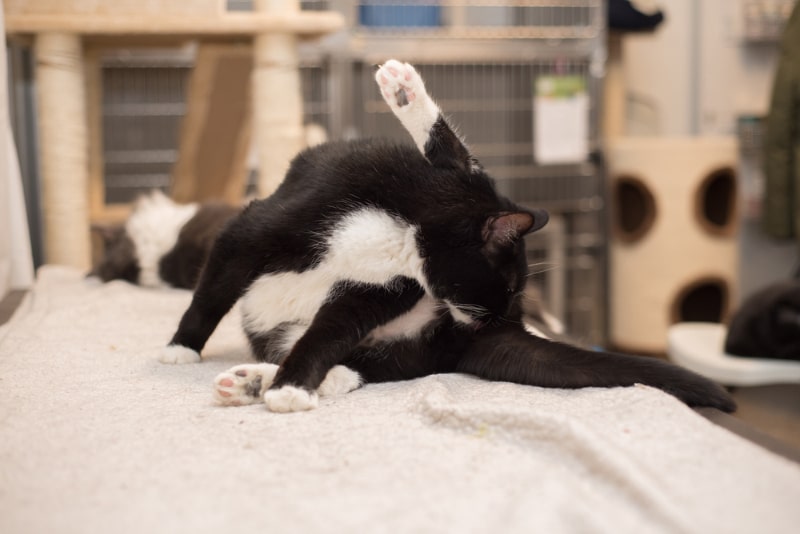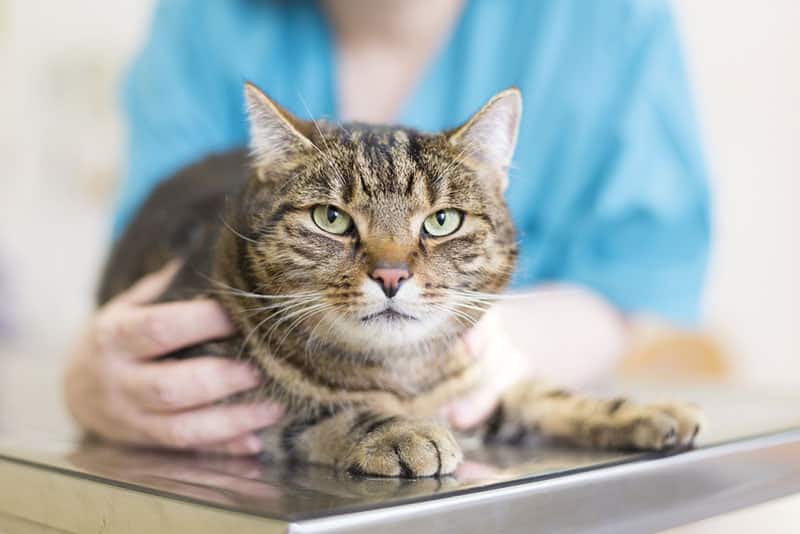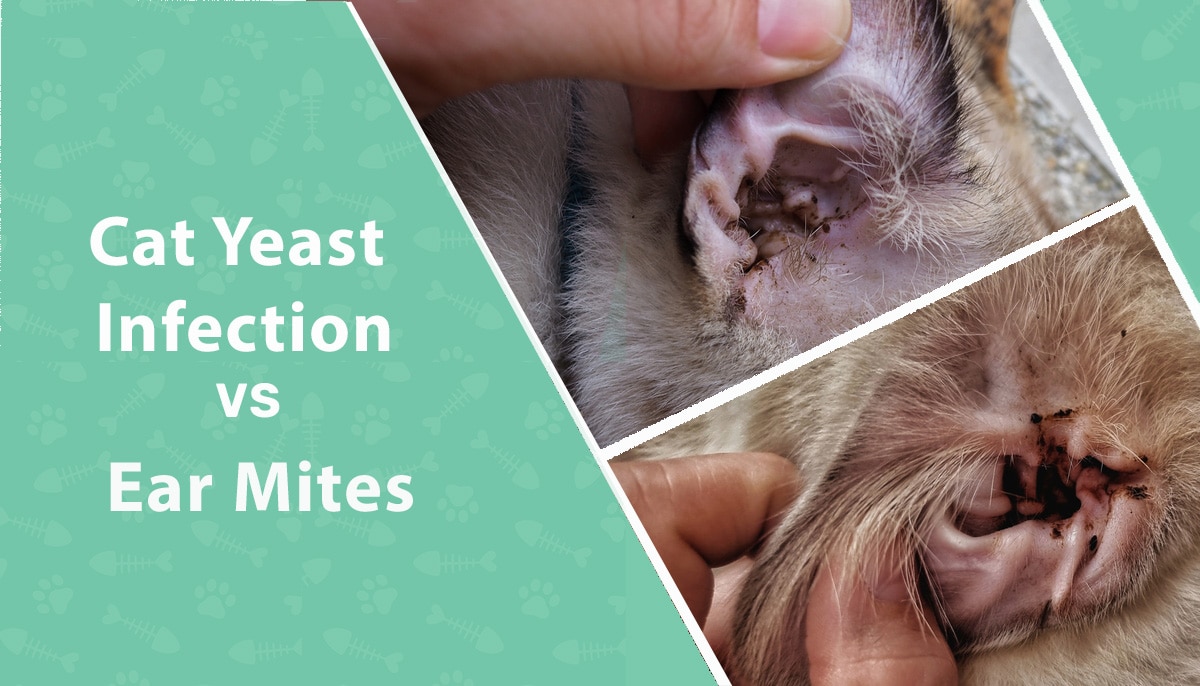Click to Skip Ahead
While most of us like to show our cats the same privacy we hope for ourselves when it comes to our pet’s private areas, there are some important things to watch out for, so it’s important to be familiar with all of the different parts.
Keep reading while we discuss feline genitals, where you can find the different parts and related health conditions so you can keep your pet healthy.
Male Cat Private Parts
1. Cat Testicles
The primary function of the testes is to produce sperm and male sex hormones, particularly testosterone. Sperm produced in the testes is transported through the penis and into the reproductive tract of the female during mating to fertilize eggs, leading to reproduction.
The testes are in the scrotum, which is a pouch of skin and muscle situated just below the anus at the base of the tail. For cats that have been neutered, the testicles will have been removed.
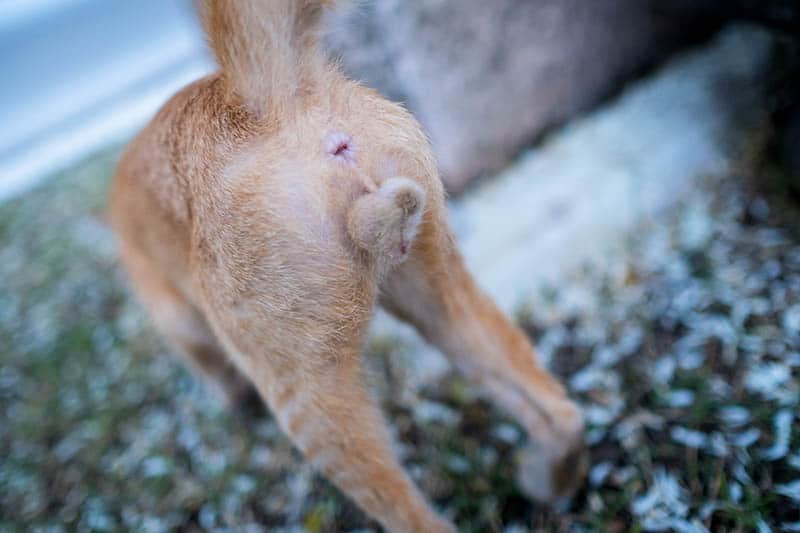
2. The Cat Penis
A penile sheath covers the feline penis, which helps protect the sensitive organ but can also make it harder to see. There are 3 parts to the male penis, the root, the shaft, and the glans or tip. The tip of the penis has small spines that help stimulate ovulation in the female.
When not in use, the penis remains hidden inside the sheath, safeguarding it from environmental elements. During mating or urination, the cat can extend the penis from the sheath.
You will find the penis of a male cat below the anus and testicles, if intact. It is inside the penile sheath, which is a protective covering. The actual penis is a partially retractable organ within this sheath.
3. Internal Reproductive Parts
These are parts that you’re not going to see, but the information here could still be useful.
Epididymis
The epididymis is a coiled tube located on the surface of each testis that serves as a storage and maturation site for sperm produced in the testes. During ejaculation, sperm travels from the epididymis to the vas deferens.
Ductus Deferens
The ductus deferens is a muscular tube that transports sperm from the epididymis to the urethra during ejaculation. It is part of the spermatic cord, which also contains blood vessels and nerves.
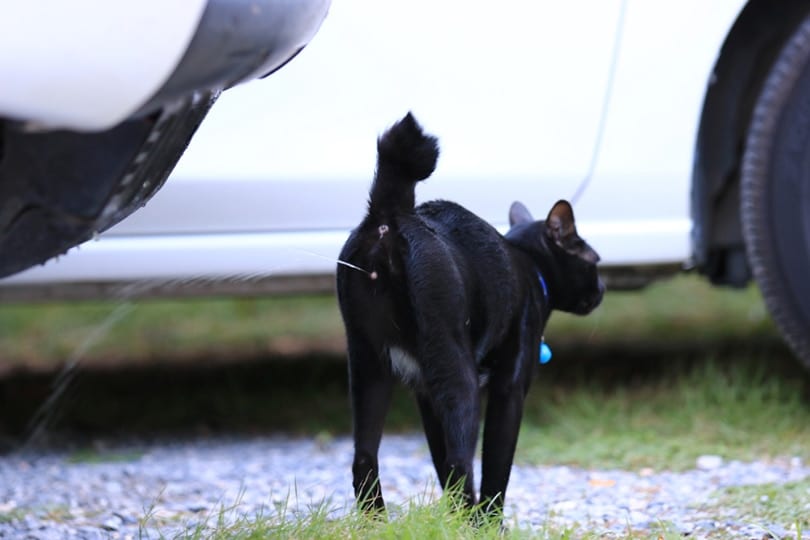
Urethra
The urethra is a duct that runs through the penis, serving both reproductive and urinary functions. During ejaculation, sperm travels through the urethra and exits the body.
Prostate Gland
The prostate gland surrounds the urethra near the bladder and produces a fluid that nourishes and protects sperm, contributing to semen.
Bulbourethral Glands
A pair of bulbourethral glands are located near the base of the penis and secrete a clear, lubricating fluid that cleanses the urethra and prepares it for the passage of sperm.
Female Cat Private Parts
1. The Vulva
The vulva is the external part of the female genitalia. It surrounds the vaginal opening and varies in appearance between individual cats.
The vulva is on the underside of the cat’s tail, closer to the hind legs, beneath the anus. The vulva consists of outer folds of skin that surround the opening to the vagina. When a female goes into heat, the vulva may become more swollen and prominent.
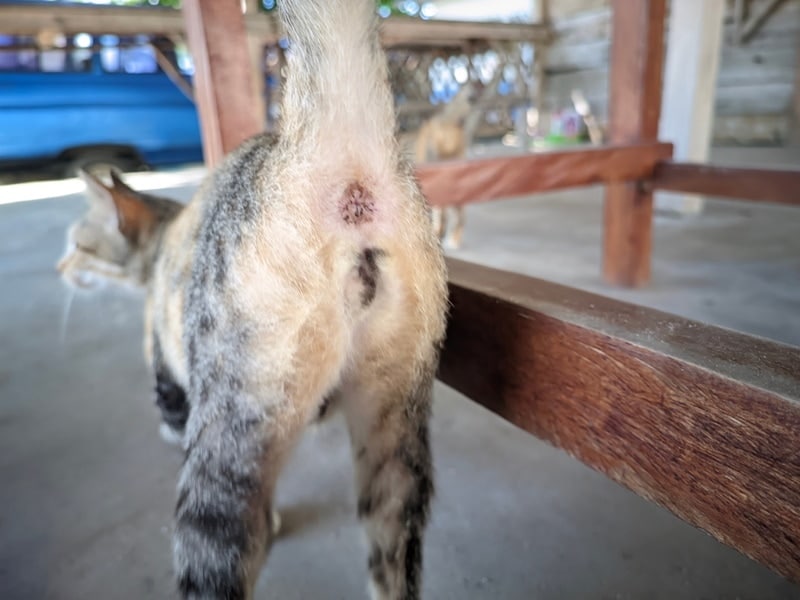
2. Vaginal Opening
The vaginal opening is where the genital tract opens to the external environment. The vaginal opening is in the center of the vulva.
3. Internal Reproductive Parts of the Female Cat
Again, these are parts that you won’t be able to see. If a cat is spayed, the ovaries, oviducts, and uterus are typically removed.
Ovaries
The ovaries are a pair of small organs located in the abdominal cavity that are responsible for producing eggs and female sex hormones, including estrogen and progesterone.
Oviducts
The oviducts are thin, muscular tubes that extend from the ovaries to the uterus. After ovulation, the oviducts capture and transport the released egg toward the uterus, and fertilization occurs here if the cat mates with a male.
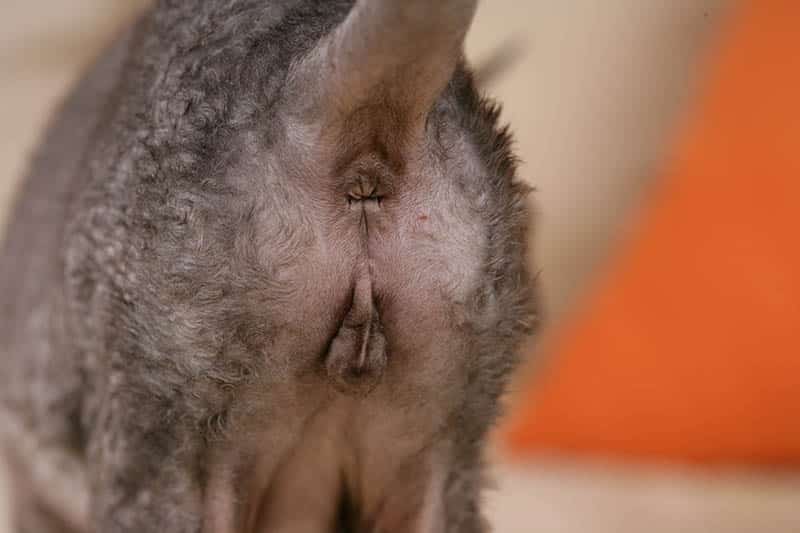
Uterus
The uterus is a Y-shaped organ where fertilized eggs implant and develop into embryos.
Cervix
The cervix is the junction of the uterus and vagina and acts as a barrier between the vagina and the uterus. During birth, the cervix dilates to allow the passage of kittens.
Vagina
The vagina is a muscular tube that connects the cervix to the vaginal opening and serves as the passage for mating and the delivery of kittens during birth.
What Health Problems Can Occur with the Reproductive Parts of Cats?
Urinary Tract Infections
Spayed female cats are more prone to urinary tract infections, which can occur when bacteria enter the urethra and travel to the urinary bladder.
Pyometra
Pyometra is an infection of the uterus and can lead to life-threatening complications. Spaying is an effective preventive measure.
Testicular Tumors
Unneutered male cats are at risk of developing testicular tumors. Neutering eliminates this risk, as it involves the removal of the testicles.
Uterine and Ovarian Disorders
Female cats may experience various uterine and ovarian disorders, including cysts and tumors. Spaying eliminates the risk of most of these issues.
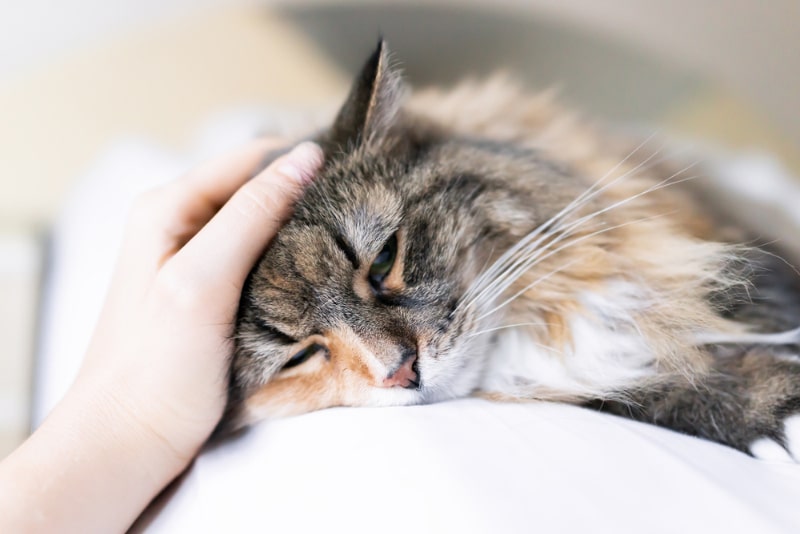
Frequently Asked Questions (FAQ)
Can Spaying Or Neutering Affect My Cat’s Behavior?
Spaying and neutering can reduce certain behaviors associated with mating, such as roaming, spraying, and vocalization, which can make a cat seem a lot calmer.
What Are the Signs of Reproductive Health Issues In Cats?
Signs of a problem with reproductive health can include changes in behavior, difficulty urinating, lethargy, discharge, or any unusual swellings around the genital area.
How Can I Tell If I Have a Neutered Male Cat?
Neutered male cats will lack testicles. When the testicles are removed, the scrotum will often shrink down to where it isn’t really visible. If you have any questions, consult your veterinarian.
Conclusion
Male and female cats have complex reproductive systems with many parts. Some are visible, like the penis and vulva, while other parts are not. If left intact, these parts can lead to various health problems, including pyometra, testicular tumors, uterine disorders, and more, so most experts recommend getting your pet spayed or neutered to help reduce or eliminate these problems.
If you notice any problems with your cat’s reproductive system due to signs like difficulty urinating or an odd discharge, contact a vet immediately for help.
Featured Image Credit: Melissa Sue, Shutterstock

